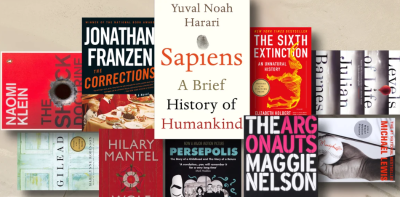Can Reading Really Improve Your Mental Health?
Some say that books are the best fertile soil for nourishing the soul. They are filled with wisdom and knowledge, and they can open our minds and cognition.
Reading a good book is like immersing ourselves in a vibrant and dynamic world, experiencing its emotions and absorbing its philosophical implications. From a psychological perspective, reading and psychology are closely linked.
What is the relationship between reading and psychology?
Reading is a cognitive activity that requires readers to mobilize various cognitive processes, such as perception, attention, memory, thinking, and emotion. These cognitive processes involve multiple psychological fields. For example, research in developmental psychology has found that early reading experiences are crucial for language and cognitive development. Reading helps children learn to express their emotions and understand the feelings and thoughts of others, thereby promoting social and emotional development. Reading also helps children understand their own feelings and emotions, improving their attention, memory, thinking, and problem-solving skills, and promoting cognitive development. If you're reading a thrilling suspense novel, reading mobilizes your full attention, comprehension, and judgment and inductive abilities. On the other hand, if you're reading an aesthetic book about painting or architecture, or even a travelogue or cookbook, reading even more deeply stimulates your perception and imagination. Imagine a plate of vibrant, fragrant Yunnan steamed chicken in your mind's eye—what a wonderful physical and psychological experience!
In short, for both children and adults, reading involves a complex brain process, and understanding and mastering these processes is crucial for improving reading and comprehension skills. Therefore, training our brains to absorb more nourishing reading is itself a form of cognitive training.

How Reading Benefits Health
Reading has numerous health benefits. Experts at cognitive neuroscience research institutions point out that reading has numerous benefits for the nervous system and has a positive impact on brain function.
- Stimulates the Brain
Reading is a form of exercise for the brain, stimulating neuronal activity, strengthening synaptic connections, and improving cognitive function. This intellectual activity helps prevent cognitive decline and lowers the risk of neurodegenerative diseases such as Alzheimer's disease. It also activates brain regions involved in language comprehension, memory, and attention. This sustained stimulation helps keep the brain active and healthy.
- Develops cognitive skills
Critical and analytical reading improves critical thinking and analytical skills. Readers often need to evaluate information, follow complex plots, and understand abstract concepts, which can enhance cognitive function.
- Prevents cognitive decline
Sustained mental activity like reading is associated with a lower risk of cognitive decline in old age. Keeping the mind active throughout life contributes to long-term brain health.
- Improves concentration and attention
Reading requires sustained concentration and attention. Over time, this helps improve these cognitive skills.
- Improves memory
Regular reading helps you perform better on memory tests. Remembering details about plots, characters, and events helps strengthen your memory.
- Reduces stress.
Samantha Henry, assistant professor of neurology at Baylor College of Medicine in Houston, USA, says that reading, as a mindfulness activity, helps refocus our thoughts on the present moment, combat stress, and improve focus. Experts at the Institute for Cognitive Neuroscience agree, adding that reading light-hearted books like novels can help reduce stress. Immersing yourself in a good book is an effective and healthy way to temporarily escape daily worries. It also allows readers to empathize with the characters' emotions and experiences, thereby enhancing empathy and social understanding.
- Improves sleep
Sleep research institutes consider reading one of the best "medicines" for improving sleep hygiene. Experts believe that reading boosts cognitive reserve and helps us accumulate material for dreams. Making reading a part of a nightly routine can improve sleep quality. Developing a bedtime reading habit can promote relaxation before bed, combat insomnia, and relax the mind and body, thereby promoting deep sleep.

Any good tips for reading?
- Set a goal before reading.
Be clear about what knowledge or thought-provoking outcomes you want to gain from the book. Set a clear goal before reading. 2. Prioritize Intensive Reading
Read, understand, and record carefully, striving to develop your own thought process while reading.
- Focus on the Essentials and Details
For content related to your goals and thought process, focus on the essentials and details, conducting in-depth reflection and analysis.
- Diversify Your Reading
Read a variety of books and articles to gain understanding and reflection from multiple perspectives, broadening your horizons and thinking.
- Take Notes and Summarize
After reading, take notes and summarize promptly, sharing your insights and reflections. Connect with other areas of knowledge to improve your overall understanding.


